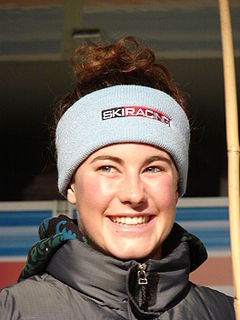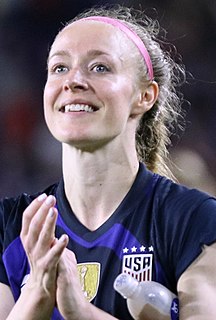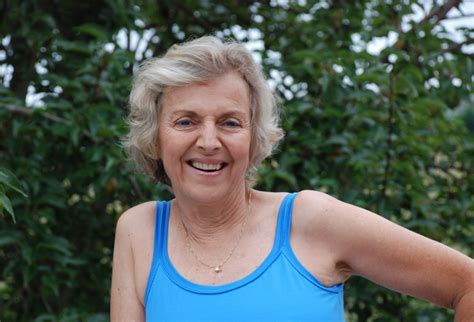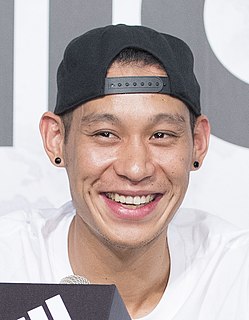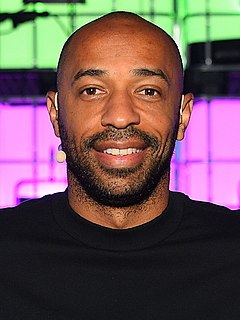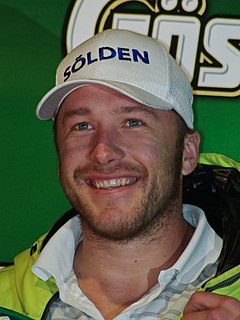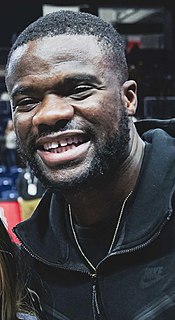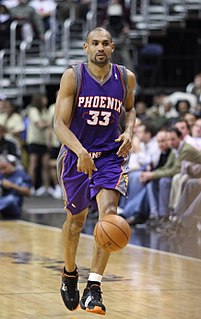A Quote by Resi Stiegler
Slalom skiers train their whole lives for like a minute and a half. We're not soccer or tennis players that can play the whole game. Once you're in the World Cup, you're physically prepared, so then ski racing almost always comes down to more mental than physical. I've been working on understanding that I've done everything that I can up until this point, and now I need to breathe and enjoy the moment, and do what I know I can do, versus trying to do more. Because you're fighting to do more, but that doesn't always work.
Quote Topics
Almost
Always
Because
Been
Breathe
Cup
Done
Down
Enjoy
Everything
Fighting
Game
Half
Know
Like
Lives
Mental
Minute
Moment
More
Need
Now
Once
Physical
Physically
Play
Players
Point
Prepared
Racing
Ski
Ski Racing
Skiers
Soccer
Tennis
Tennis Player
Than
Then
Train
Trying
Understanding
Until
Up
Versus
Whole
Work
Working
World
World Cup
Related Quotes
The way I play, it's very much more a mental game than a physical game. I'm looking for space and where are players leaving space. Defensively, where are we at numerical disadvantages? Do I shift more to the left because they have more players on their right side? It's about reading the game before the game happens.
For sure, with golf it's not a physically demanding sport like tennis. That's what makes tennis great - you combine both things. It's a very mental sport and at the same time can be dramatically physical. But I do admire the mentality of sport more than the physicality because physical performance is much easier to practice than mental performance.
The players start to recognise your game, start to know how you move, how you pass, how you shoot and the things become difficult now. So now I need to improve more and to work more and understand more the teams who I play against because they will understand me better, but I need to be prepared to understand better the difficulties they can have.
I started teaching yoga in 1974 in Colorado, I was living in Winter Park, and I started teaching skiers. At that point I was teaching more of the Sivananda system and just pushing it up a little bit to make it a little more rajasic a little more active, a little more physical. People would come, and feel great, and by the time I left Colorado in 1980 I'd taught pretty much everyone in town - the ski patrol, ski instructors, the bar owners.
There's been times when I've been in really tough shape at the top of the course. Talk about a hard challenge right there. I mean, if you ever tried to ski when you're wasted, it's not easy. Try and ski a slalom when … you hit a gate less than every one a second, so it's risky, you know. You're putting your life at risk there. It's like driving drunk only there's no rules about it in ski racing.
We don't need no more rappers, we don't need no more basketball players, no more football players. We need more thinkers. We need more scientists. We need more managers. We need more mathematicians. We need more teachers. We need more people who care; you know what I'm saying? We need more women, mothers, fathers, we need more of that, we don't need any more entertainers
We are seeing, then, that our experience is altogether momentary. From one point of view, each moment is so elusive and so brief that we cannot even think about it before it has gone. From another point of view, this moment is always here, since we know no other moment than the present moment. It is always dying, always becoming past more rapidly than imagination can conceive. Yet at the same time it is always being born, always new, emerging just as rapidly from that complete unknown we call the future. Thinking about it almost makes you breathless.
People in tennis, they've been in a certain bubble for so long they don't even know who they are, because obviously it's just been tennis, tennis, tennis. And let it be just tennis, tennis, tennis. Be locked into that. But when tennis is done, then what? It's kinda like: Let's enjoy being great at the sport.
